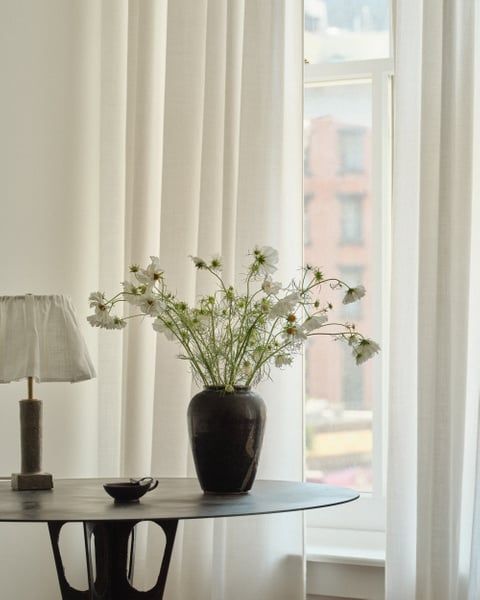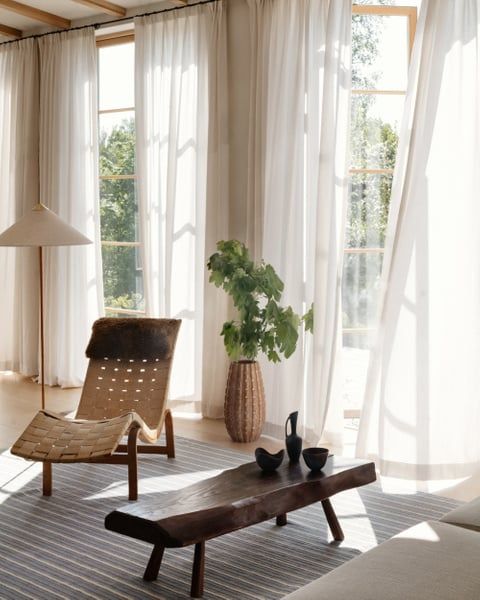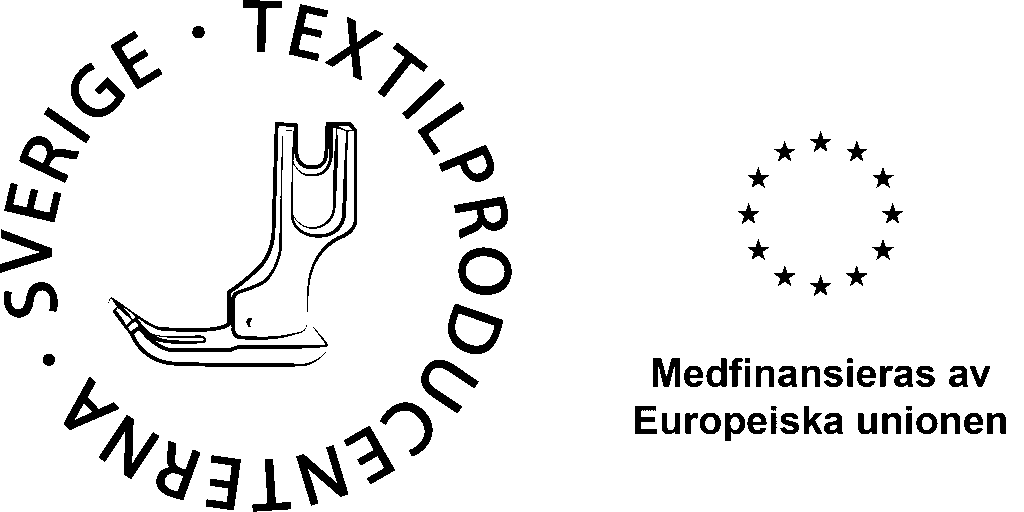
In an era where mass production is often the norm, the company Textilfabriken is going its own way. As a member of the sewing association Textilproducenterna, the company has found a way of working that combines craftsmanship, technology and sustainability in a way that benefits both customers and the environment.
Among all the assignments, it has also chosen to specialize in custom-made curtains. Textilfabriken has now built up a smart and circular production flow. Here, it is not about filling warehouses with standard products, but about creating exactly what each customer needs, in the right length and with the right expression.
A way of working that minimizes waste
In the company’s premises, rolls of fabric are neatly lined up, ready to be transformed into custom-made curtains when an order comes in. In this way, Textilfabriken can quickly produce according to measurements, pack and ship directly to the end customer. This makes the process both efficient and environmentally sustainable.
“Our goal has always been to avoid overproduction. Every curtain we sew already has a recipient, and that makes all the difference. We can focus on quality, fit and details without having to worry about surplus,” says Malin Wiland at Textilfabriken.
For customers, this means not only a more sustainable solution, but also the opportunity to order curtains that really suit their room and needs.
From craftsmanship to high technology
Textilfabriken is a company where traditional sewing meets modern technology. To achieve precision and efficiency, the company has invested in a digital cutting table, which makes it possible to cut fabrics with very high accuracy. There is also a punching machine that can be used for several types of materials, such as fabric, filters, rubber, plastic and aluminum.
The technology not only creates more precise production, but also makes it possible to take on more types of assignments. In parallel with this, the company is investigating new automations that can further streamline processes.

“We want technology to support craftsmanship, not replace it. For example, every detail in our curtains is the result of skilled hands and careful work, but we use technology as a tool to achieve even better results,” explains Malin Wiland.
Social sustainability at the center
Sustainability is a central part of Textilfabriken’s identity, and it is not just about climate impact. The business has several employees who came to Sweden as new arrivals and who have now been given the opportunity to work with something they already have experience with from their home countries.
Creating work and faith in the future is just as important as producing climate-smart products. The human dimension permeates the entire company’s philosophy.
“We are proud to be able to offer safe workplaces where people can grow. Several of our employees have a long experience of sewing and now they get to use their knowledge in a way that makes a difference,” says Malin.
A sustainable model for the future
By producing curtains to order, Textilfabriken avoids overproduction and unnecessary use of resources. It is a way of working that benefits both the customer, the environment and society. In addition, the model contributes to strengthening Swedish textile production and creating local jobs.
Today, the company delivers custom-made curtains to all of Europe, but remains true to its Swedish roots. Quality, precision and responsibility are values that permeate every aspect.
“We see that more and more customers are starting to value sustainability and local production. It feels hopeful to be able to show that it is possible to combine profitability with consideration for both the planet and the people behind the production,” concludes Malin Wiland.
Looking to the future
With several new collaborations underway and a clear ambition to develop both technology and craftsmanship, the future looks bright for Textilfabriken. The company continues to show that Swedish textile production not only has a place in the future, but can be a role model for what sustainable industrial sewing can look like.
Contact:
Contact form: textilproducenterna.se
The Textile Producers Sewing Association is part of the CircularHub Twin Transition project’s ambitions to help create a circular ecosystem. The CircularHub Twin Transition project is funded, among other things, by the European Regional Development Fund.

